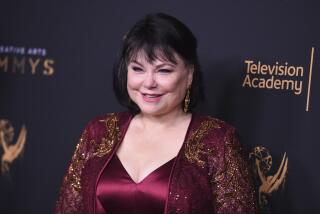‘Biggest Loser’ controversy can focus on public health issues
The executive director of the Eating Recovery Center of California, Jennifer Lombardi, says it was no surprise to her that a contestant on “The Biggest Loser” lost a shocking amount of weight – in this case, Rachel Frederickson dieting to less than half her weight.
“I have been waiting anxiously for this moment to arrive,” she said a few days later.
Lombardi says the NBC reality show “puts people in the bubble” of constant supervision and grueling workouts to win a prize; Frederickson won $250,000 on Feb. 5, setting off a social media firestorm.
Reaction has been mixed, with plenty of criticism of a reality show that uses one of the nation’s biggest health problems as the focus of competition, but also support for a turning a spotlight on that problem.
“Creating a contest around this huge public health issue really is a very dangerous proposition,” says Dr. Connie Quinn, director of the Renfrew Center of New York. “It really puts people who are extremely vulnerable emotionally and physically at high risk. You’ve got cardiac issues, physical injury, extreme weight loss.”
“Creating a contest with somebody’s life is kind of like the ‘Hunger Games,’” Quinn says.
But it’s also an opportunity for people to learn.
Frederickson, a 24-year-old voice-over artist, won the show’s 15th season, weighing in at 105 pounds on a huge scale on stage. That amounted to 59.62% of the 260 pounds she carried when she began the competition.
Of course, the public does not know much about her health, several experts said, adding they’d like to see the show take that more into account.
“The point is who loses the most weight, not who does it in the healthiest way,” says Julie Holland, an eating disorder specialist at the Denver branch of the Eating Recovery Center.
Jillian Lampert, vice chair of the Washington-based Eating Disorders Coalition, an advocacy group, agrees, even though the contestants’ efforts can be inspiring.
“I think it’s a bad idea,” she says. “The idea of having a contest and … having only one winner. It negates all the hard work of all the others. Instead of a journey to wellness, it becomes a contest to become a celebrity.”
Holland says one reason Frederickson has caused so much conversation is the context. “If you had looked at Rachel walking down the street, you might say, ‘Wow, her legs are sculpted,’” and admire her.
One of the show’s trainers, Bob Harper, recently told The Times’ Rene Lynch that viewers needed to keep that context in mind.
“People can never try to compete with the numbers they see on ‘The Biggest Loser,’” he said. “It’s not a real situation. It’s reality TV on steroids. Everything is so enhanced. You use the show as a motivational tool, but not as a way to compete from home.”
Nia Mitchell, of the University of Colorado Anschutz Medical Campus, says people often use competition as a motivator to lose weight. She has studied the program Taking Off Pounds Sensibly, and notes that its chapters have a program in which a person drops a quarter in a kitty for every quarter pound of weight gained, and the kitty goes to the person who loses the most.
“The Biggest Loser” isn’t talking. “No one is available for an interview at this time,” was the response to a request. Host Alison Sweeney was too busy to talk, a spokeswoman said. The NBC website has before and after pictures of Frederickson, without discussing the controversy.
[For the record, 2 p.m. Feb. 12: An earlier version of this post incorrectly attributed this comment to Kimberley Quinlan, a therapist at the OCD Center of Los Angeles: “Creating a contest around this huge public health issue really is a very dangerous proposition. ... It really puts people who are extremely vulnerable emotionally and physically at high risk. You’ve got cardiac issues, physical injury, extreme weight loss.” The speaker was actually Dr. Connie Quinn, director of the Renfrew Center of New York. ]
ALSO:
King Richard III is about to get his genome sequenced
73% of kids get a caffeine jolt on any given day, study says
Mammogram screenings don’t reduce cancer death rates, study finds
Twitter: @mmacvean
Jillian Lampert







